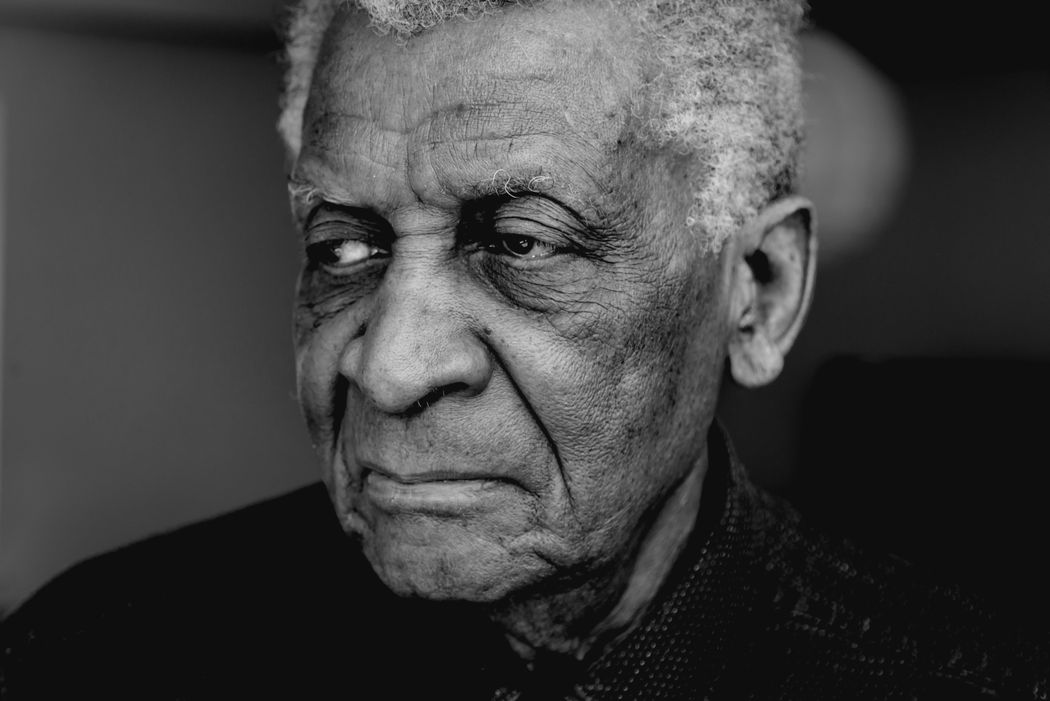When jazz was in its infancy, people thought of it as music—if they regarded it as music at all—that was invariably loud, fast and rambunctious. From the beginning, “to jazz something up” meant to make it more exciting. Yet for nearly 100 years, the music has consistently also attracted more thoughtful and introspective players and composers, like Bix Beiderbecke (in his piano compositions especially), Billy Strayhorn and Bill Evans. It might seem ironic, then, that one of the most lyrical of contemporary jazzmen comes from the very continent often cited as the inspiration for the aggressive energy that jazz on the whole was originally known for.
The pianist, composer and bandleader Abdullah Ibrahim was born in Cape Town, South Africa, in 1934 and in the earlier part of his career worked under the name Dollar Brand. He has been a major presence on the international jazz scene since 1963, when he was discovered and subsequently recorded by Duke Ellington. On July 15 of last year, a few months before his 89th birthday, Mr. Ibrahim recorded two remarkable sets in London’s Barbican Hall. On both, he was joined by Cleave Guyton Jr., on flute and piccolo, and Noah Jackson, on bass and cello. Mr. Ibrahim’s new album, “3” (Gearbox, out Jan. 26), comprises both of these performances.
The first set, which totals 17 minutes, was taped without an audience in the afternoon and consists of six original compositions. The opening track, “Barakat,” starts with a few slow piano notes, first as an intro but quickly as a background, before Mr. Ibrahim is joined by Mr. Guyton on flute and, briefly, Mr. Jackson bowing his bass, arco style. The second piece, “Tsakwe,” is much faster and more urgent, with the flute soaring over frantic, pizzicato bass playing; just 82 seconds long, this work features only a few chordal colorings from the pianist at the very end.
“Krotoa—Crystal Clear” is the slowest track, a piano solo in which Mr. Ibrahim creates a musical picture of, in my mind’s eye at least, a tropical pool, with staccato individual notes resonating like ripples in the water. It’s more of a painting than a story, and he employs half-step dissonances with his left hand and octaves with his right, among other keyboard effects that go well beyond conventional Western tonality. There’s also no smooth ending here—rather, it’s as if a stream of running water just suddenly stopped flowing.
The second set, which was performed in the evening in front of an audience, includes works by composer-musicians in the jazz pantheon. “Giant Steps” is the John Coltrane standard; and while “In a Sentimental Mood” is by Duke Ellington, the Ellington-Coltrane version clearly served as Mr. Ibrahim’s inspiration, so this may be considered a dedication to Coltrane as well.
“Sentimental Mood” finds Mr. Guyton stretching out expansively in a Coltrane-like manner, while “Giant Steps” has Mr. Jackson playing unaccompanied, plucking out Coltrane’s melody and then rapidly running variations. Thelonious Monk’s “Skippy,” a variation on “Tea for Two,” is the most playful piece here; it opens with Mr. Ibrahim playing a cascading sequence of notes that take the shape of another Monk standard, “Misterioso.” Then the piece changes tempo and mood quickly, as piccolo and bass go through a lighthearted romp on the main tune.
Both sets feature new versions of several vintage works by Mr. Ibrahim, among them “Water From an Ancient Well.” First recorded on the pianist’s 1986 album of that title, it is a lovely and blissfully tranquil piece that sounds especially so here, as a feature for Mr. Guyton’s flute. “Mindif” was most famously heard on “African Suite,” a celebrated 1998 album that paired the pianist with a string orchestra. He plays it on both sets here, and both times it’s nothing less than mesmerizing, climaxing with a majestically cinematic flourish, and the live version concludes with two full minutes of audience applause.
Other tracks contain surprises: Mr. Guyton seems to be playing clarinet on another Ibrahim classic, “The Wedding.” As the title implies, the melody is more romantic than many of the other pieces, but it’s also rendered in a placid fashion, with arco bass, that speaks to the role of weddings as an engine of communal continuity. The final track, “Trance-mission,” finds Mr. Ibrahim chanting in several different languages.
The six tracks in the afternoon sequence constitute a complete, albeit brief album unto themselves. The 13 live tracks from the evening performance have a very different feel. There’s an audience here, but the atmosphere is more like a classical concert than a jazz event; throughout, the house keeps incredibly still, like it is hanging on every note and doesn’t want to miss a single one of them.
Original article by Will Friedwald from the The Wall Street Journal
